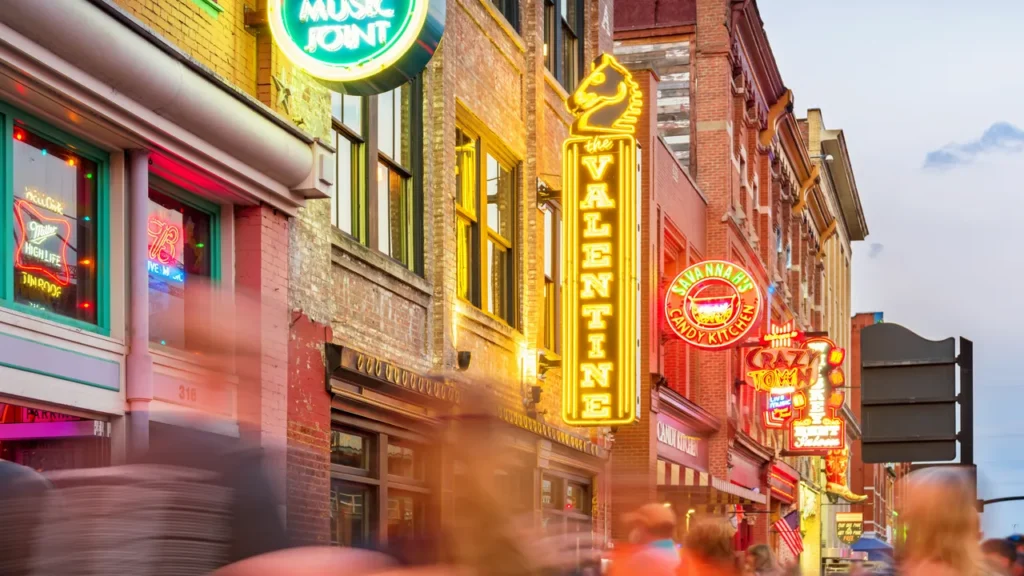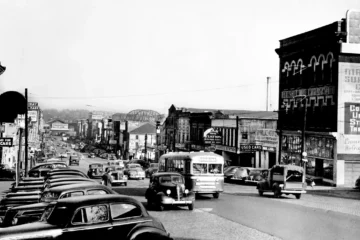A Newcomer’s Survival Guide: Cost of Living Breakdown of Nashville
Nashville, Tennessee, also known as “Music City,” is not only famous for its rich musical history but also for its rapid growth and transformation into a hub for business, entertainment, and culture. Whether you’re drawn to Nashville’s vibrant music scene, thriving job market, or Southern hospitality, making the move to this iconic city comes with its own set of challenges and opportunities. As a newcomer, it’s important to understand the key aspects of survival and the cost of living to make the most of your new life here.
The Nashville Scene: A Snapshot of a Growing City
Nashville’s transformation over the past decade has been nothing short of extraordinary. The city has seen an influx of residents from across the country, drawn by its lower cost of living compared to other major metropolitan areas, a booming job market, and a unique cultural scene. With its legendary honky-tonk bars, eclectic neighborhoods, and outdoor amenities, Nashville offers newcomers a little something for everyone.
But what does it really take to settle in? And what does living in Nashville cost? Let’s break down what newcomers need to know about survival and the cost of living in this vibrant city.
Cost of Living in Nashville: What You Should Know
Nashville’s cost of living is significantly lower than cities like New York, San Francisco, and even Atlanta, but that doesn’t mean it’s “cheap.” In recent years, Nashville’s growth has led to rising housing prices and increased demand for goods and services. Let’s break down some key cost-of-living categories:
- Housing: The Biggest Expense
One of the most significant costs you’ll face in Nashville is housing. Over the last decade, the city has seen a boom in real estate development, but housing prices have surged due to demand.
– Renting: Rent prices in Nashville have increased by nearly 30% over the past few years. As of 2025, the average monthly rent for a one-bedroom apartment in Nashville is around $1,700 to $2,200, depending on the neighborhood. Popular areas like downtown, East Nashville, and The Gulch tend to have higher rents, while suburban areas like Antioch, Madison, and Hermitage offer more affordable options.
– Buying a Home: If you’re looking to buy, be prepared for a significant investment. The median home price in Nashville is approximately $400,000, though this number fluctuates depending on the area. Neighborhoods like Green Hills, Belmont, and Sylvan Park are sought-after, which drives up prices. For those hoping to buy in more suburban or emerging areas, home prices may be a bit more manageable, but prices across the city are on the rise.
- Utilities: Affordable But Growing
Utilities in Nashville are relatively affordable, though they can add up depending on your home size and usage. The average monthly cost for electricity, heating, water, and garbage is typically around $150 to $200, but this varies based on the season. Summers can bring higher electricity bills due to the use of air conditioning, while winters tend to be milder.
Internet is also a must-have for most people, and providers like Comcast Xfinity, AT&T, and Spectrum offer high-speed internet with average monthly bills around $60 to $100.
- Transportation: Navigating the City
Getting around Nashville is relatively easy, but there are some things to keep in mind when it comes to transportation costs:
– Car: Nashville’s public transportation system, operated by the Metropolitan Transit Authority (MTA), offers bus service, but it’s not as extensive or efficient as in larger cities. The vast majority of residents rely on cars to get around. Gas prices in Nashville tend to be on par with the national average, and car insurance premiums in the state of Tennessee are generally affordable but may vary based on driving history and location. On average, a monthly car payment and insurance will set you back between $400 and $700.
– Public Transit: Nashville’s bus service costs about $1.75 per ride, or you can purchase a monthly pass for around $45. However, due to limited routes and hours of operation, many people opt for personal vehicles or rideshare services like Uber or Lyft.
– Parking: If you live in the downtown area, parking can be expensive and competitive. Many apartment buildings and condos offer parking, but the cost can be high, often reaching $200 to $300 per month. Street parking in popular areas can cost $2 to $5 per hour.
- Food and Dining: A Growing Food Scene
Food in Nashville is delicious, and it’s no surprise that the city’s food scene has earned national attention. From world-class barbecue to hot chicken and upscale dining, there’s something for every palate.
– Groceries: A typical grocery bill for one person in Nashville is around $250 to $350 per month. Local grocery stores such as Publix, Kroger, and Whole Foods offer a wide selection of products, but prices are slightly higher than the national average. However, you can save money by shopping at discount chains like Aldi or farmers’ markets, where fresh produce can be more affordable.
– Dining Out: Eating out in Nashville can be both a joy and a cost to consider. On average, a meal at a mid-range restaurant will set you back about $15 to $30 per person. Nashville’s fast-casual food scene, including food trucks and casual eateries, offers lower-priced options ranging from $10 to $15 for a meal.
- Healthcare: Affordable and Accessible
Healthcare in Nashville is generally accessible, and many of the city’s hospitals and clinics are top-notch. The city has a thriving medical community due to the presence of the renowned Vanderbilt University Medical Center. Health insurance premiums in Tennessee are relatively affordable, and the state has a number of private health insurance options, as well as Medicaid for qualifying residents.
For an individual, the average monthly health insurance premium in Nashville ranges from $300 to $500 depending on the type of plan you choose. Routine medical visits, prescriptions, and other services can vary, but Nashville’s healthcare system is highly regarded, and wait times for appointments tend to be shorter than in other major cities.
Surviving and Thriving in Nashville as a Newcomer
While the cost of living in Nashville may not be as steep as some of the nation’s larger cities, there are still several practical tips and strategies for surviving and thriving in Music City.
- Learn the Local Culture
One of the most exciting aspects of living in Nashville is the culture. Known for its Southern hospitality, the people of Nashville are friendly and welcoming. Understanding the local customs and etiquette is key to fitting in. Southern manners, saying “please” and “thank you,” and learning how to “shoot the breeze” with neighbors are all part of what makes Nashville’s charm.
If you love live music, you’ll find a vibrant scene in nearly every neighborhood, from intimate venues to larger concert halls. Dive into the music scene and explore the iconic Broadway Strip, but don’t forget to venture off the beaten path to discover local spots that offer great music, food, and a sense of community.
- Plan for the Weather
Nashville’s weather is generally mild but can be unpredictable. Summers are hot and humid, with temperatures often reaching the 90s (°F), while winters are relatively mild, with occasional snow. Be prepared for the weather by dressing in layers and having air conditioning in the summer. In the winter, you won’t need heavy coats, but a warm jacket is essential.
- Get to Know the Neighborhoods
Each neighborhood in Nashville has its own unique vibe, so take the time to explore and see what feels right for you. Areas like East Nashville are known for their trendy vibe, while neighborhoods like 12 South are popular with young professionals. For a quieter, suburban feel, consider places like Bellevue or Mount Juliet.
Conclusion
Nashville is a dynamic and exciting place to live, but like any city, it comes with its own set of challenges. The cost of living in Nashville has risen steadily as the city grows, but it still remains affordable compared to many other major U.S. cities. By understanding the key aspects of housing, transportation, food, and healthcare, newcomers can better plan their move and adjust to life in Music City. So pack your bags, tune your guitar, and get ready to experience everything Nashville has to offer!


